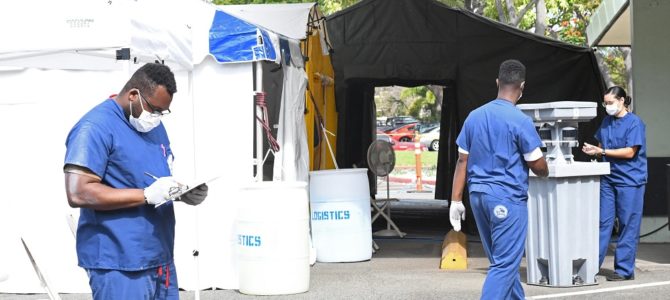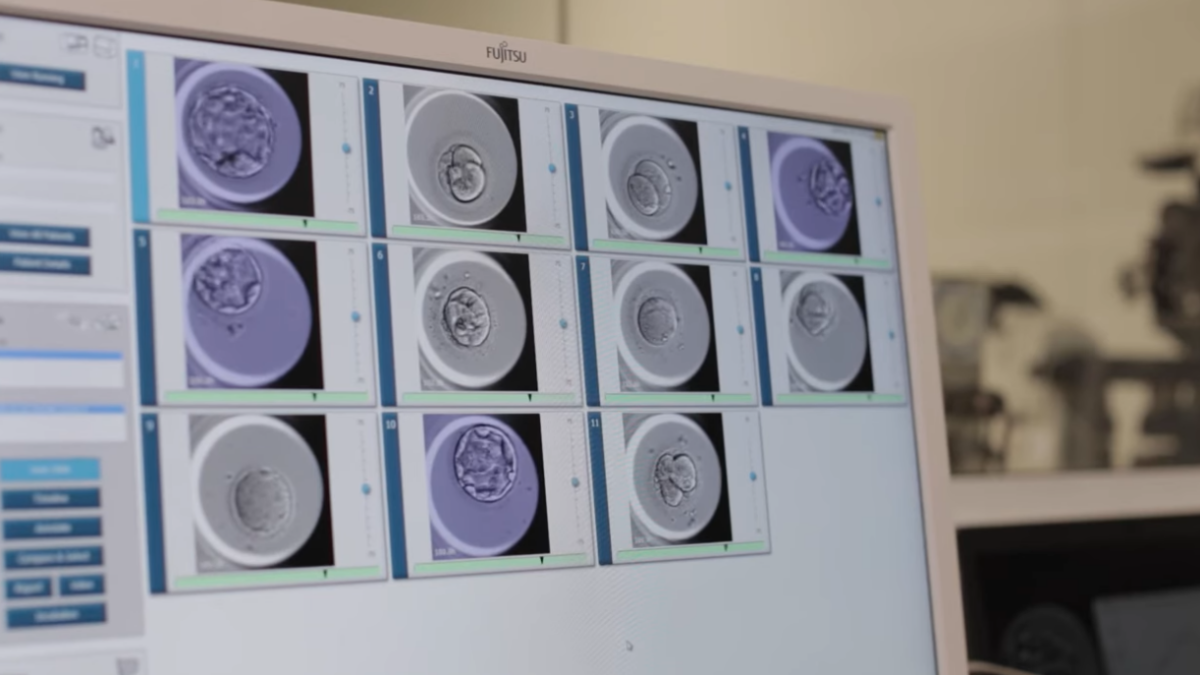
Two weeks into the coronavirus pandemic, much remains unknown. There are two certainties, though: Americans need more humility and we need more awe.
Americans need humility to recognize the limits in our predictive capabilities; the uncertainty of scientific models; and that the countervailing interests of safeguarding lives and livelihoods render it impossible for any political leader to achieve a perfect outcome.
The reflexive rejection of contrary views as either an ignorant exaggeration (or downplaying) of the danger of the coronavirus must soften. And the arrogant attitude that we or they own the answer and that anyone suggesting alternative responses to the coronavirus must be acting from stupidity, malice, or greed must stop.
Learning a Lot Fast
We need the humility to recognize that we just don’t know—a lot. What we know now, we didn’t know three months ago. COVID-19 is a new disease. Initially, experts believed most people infected with the coronavirus had contracted the disease by exposure to animals. In mid-January, there was only “some indication” that “a limited person-to-person spreading of the disease” was happening.
By January 21, 2020, the first known cases in the United States involved travelers from Wuhan, China. At that time, experts at the Centers for Disease Control (CDC) still believed “the current risk from this virus to the general public is low” and “for a family sitting around the dinner table tonight this is not something that they generally need to worry about.”
Yet at the time the CDC stressed that it was preparing “as if the coronavirus was the next pandemic.” The CDC initiated airport screening and by January 21, 2020, CDC scientists had also developed a diagnostic test for use at CDC headquarters, while they continued to prepare a diagnostic test that could be used by state public health agencies through the flu-tracking system.
By the end of January, within two weeks of receiving the genetic sequencing of the coronavirus from China, the CDC had created the test for the public health system and obtained the necessary Food and Drug Administration approval. By then, President Trump had also banned travel from China, even though at the time the scientific models recommended against that step.
Some Things We Got Wrong, Some Right
By February 3, 2020, the worldwide threat of the coronavirus became clear. President Trump instituted more travel bans—Italy and then select European countries, and later the United Kingdom, Mexico, and Canada. Those measures saved lives and slowed the spread within our borders, even though the prudence of those decisions only became known retrospectively.
Conversely, retrospect revealed that the flu-tracking system was ineffective for screening for the coronavirus. Experts had wrongly concluded that the virus remained outside our borders and believed that quarantines—which had not been used for some 50 years—and “very aggressive” tracking of close contacts would isolate and limit the spread in the United States.
But the virus had already been present in the United States for too long, leading to a quick spread of the disease and worries that the pandemic would kills millions in our country. The government responded by closing down businesses, schools, government services, and churches—in effect, closing down America.
The blame-throwing began. The government did too little, too late, and people will suffer and die as a result. No, the government did too much—it overreacted, it destroyed American businesses and livelihoods over a disease that is less severe than the flu.
Seriously, We Just Don’t Know Yet
Just as the experts did not know the reach of the coronavirus in January, they did not know the risk of the respiratory disease in March. How deadly is it? How easily is it spread? How is it spread? How many lives are at risk? Who is at risk?
Americans accustomed to instant gratification have lost their sense of awe. Science is not infallible. And testing, treatments, and cures are not immediate.
The world is facing a new disease that was never before known to exist in human beings. Yet, in the span of three months, our country went from a gene sequence, to limited diagnostic testing through the CDC system, to high through-put testing and the creation of an entirely new testing system, to instant tests and self-swabbing kits. Simple pin-prick blood tests that will detect coronavirus antibodies will be ready soon.
Our country has also unleashed the power of capitalism to identify several promising therapeutic options, and human studies are already underway. A vaccine has also already been developed with human studies already initiated—months earlier than expected and faster than any prior vaccine trial. Hospital patients are also already receiving plasma from survivors of the coronavirus, with doctors hopeful that the antibodies from those who have recovered from the disease will successfully treat those in critical condition.
Humility Is In Order, Too
Over the last month, health experts have also been able to accumulate untold amounts of data. That data will provide more certainty about the disease and analyses will allow for our leaders to make more educated decisions concerning the reopening of America.
It may well be that that data will suggest early decisions were an overreaction and that businesses and livelihoods were unnecessarily destroyed. But models constructed from newly acquired data might be wrong, just as the models recommending travel from China continue unabated proved wrong.
As we wait for more details on the coronavirus, we would be well served to abandon our hubris and accept that our country has never faced a similar crisis and that we will never know for sure whether, without the aggressive response taken by our federal and state governments, every locale would now be facing the same dire situation New York City finds itself confronting.
Likewise, those Americans who believe our country averted the worst disaster our republic ever faced need some humility: We need to recognize that reasonable people can also justifiably believe the government’s blunt response unnecessarily crippled our economy, destroying lives and livelihoods in the process.
We need more compassion for those people—real, living human beings with families, homes, hopes, and dreams. Moms and dads who labored for years, decades, generations to build something by sweat and toil, only for it to be destroyed within a month. Small businesses with no choice but to lay off employees, hoping to stave off a permanent shuttering of operations. As those lights extinguished, employees were left without jobs and paychecks, and with an unknown future.
That suffering is real, too. Any ignorant politicians who pretend the reopening of America is about Wall Street should be ashamed of their partisan grandstanding. They should be forced to repeat that nonsense while looking into the red, weep-weary eyes of the average Americans who built this great country.









